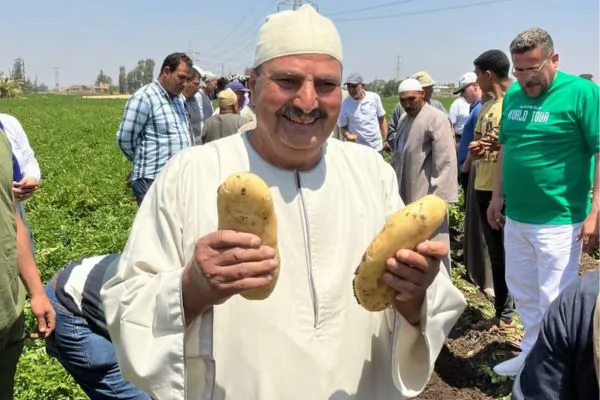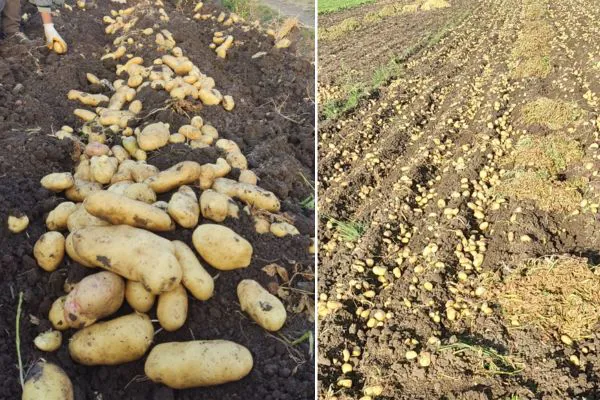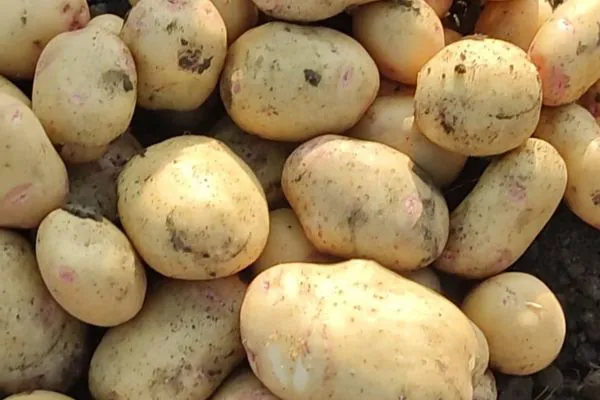Despite a difficult potato season in Egypt, due to weather disturbances that reduced yields in some areas, producers say they have managed to achieve good volumes. Sayed El Attar, an Egyptian potato producer, commented on the situation.

Unlike his neighboring producers, Sayed's crop has not been impacted by Nadwa
Sayed said: "The climatic disturbances, in the form of a long cold snap, brought with it a disease that affected potatoes and reduced sizes and yields. This phenomena is known locally as "Nadwa". But not all regions were affected by Nadwa in the same way. In areas where growers have fought the disease, with good treatments and good seed choices, we have had good quality and good prices. There are also regions that have not been affected by the Nadwa. On the other hand, in the regions that were affected, the damage was very significant, in the order of 25 to 50% decrease in yield".
Sayed continues: "If there had been no problem this year, volumes could have been historic due to the increase in acreage. However, the 'Nadwa' problem remained for a very long time, right up until the harvest, and disappeared as the temperature increased."
Eager to share his experience with Egyptian growers, Sayed calls for better consideration of climate change: "It is quite possible to avoid the nadwa problem, with proper treatment and a good choice of resistant varieties. In this regard, the disease-resistant seeds I used this year have proven to be effective. And the increase in night temperatures reduced tuber respiration, which resulted in good sizes.

Left: Sayed's crop. Right: neighboring crop impacted by nadwa
He continues: "It is now essential for all Egyptian growers to monitor climate change and act accordingly by treating climate-related diseases. The reward is immediate for those who treat their crops well, in terms of volumes and prices."
Despite the weather phenomenon, volumes are large this year, says Sayed. "The quantities we have now are quite sufficient for the local market, including households, food processing plants, and storage until winter. Large volumes are also available for export, and they will increase from next year. This is due to the increase in cultivated areas and the fact that the nadwa has not affected all regions. We are also satisfied with the prices, as the demand is currently very high, both in the local market and for export. Prices have not dropped, even during the peak harvest period.

He concludes, "I expect volumes to increase as early as next year, provided that the government accompanies this increase by providing sufficient quantities of licensed seeds, that prices remain stable, and that producers are proactive in terms of monitoring climate change and treating diseases.
For more information:
Sayed El Attar
Al Farastaq
Tel: +20 102 400 8401
Email: [email protected]










